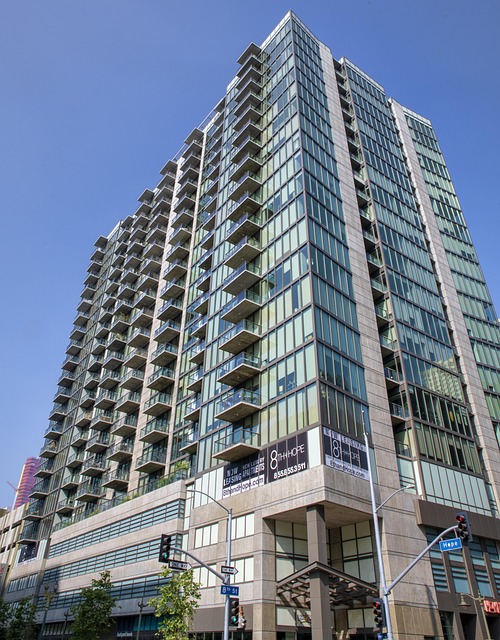Los Angeles' aging population presents unique mental health challenges for long-term care facilities. Specialized services are crucial to address issues like depression, anxiety, cognitive decline, and lesser-discussed problems like memory loss and elderly sexual assault. Integrating mental health support through multi-disciplinary teams, staff training, and legal expertise is vital. Collaboration between facilities, healthcare providers, social services, and elderly sexual assault attorneys Los Angeles creates a robust community network for comprehensive care, respecting the dignity of older adults.
In Los Angeles, integrating mental health services into long-term care is crucial for meeting the unique needs of its elderly residents. This article delves into the specific mental health challenges prevalent within this demographic, exploring strategies to seamlessly incorporate specialized services. We discuss legal considerations, notably the role of elderly sexual assault attorneys in ensuring comprehensive care. Additionally, we highlight community support and collaboration as key drivers towards a holistic approach, focusing on Los Angeles as a case study for best practices in long-term mental health management.
Understanding the Unique Needs of Elderly Residents

The aging population in Los Angeles presents unique challenges and opportunities for long-term care facilities. Understanding the nuanced needs of elderly residents is a cornerstone of integrating mental health services effectively. Many older adults experience cognitive decline, chronic illnesses, and sensory impairments, which can significantly impact their emotional well-being and mental health.
Additionally, it’s crucial to recognize that this demographic faces heightened risks of certain mental health issues, such as depression, anxiety, and even trauma, including potential instances of elderly sexual assault. Given the sensitivity of these matters, specialized care is required. An elderly sexual assault attorney in Los Angeles can play a vital role in navigating legal complexities and ensuring justice for victims, while mental health professionals can provide crucial support to help residents cope with emotional trauma and rebuild their sense of security within long-term care settings.
The Prevalence of Mental Health Issues in Long-Term Care

In Los Angeles, where a significant portion of the population comprises older adults, addressing mental health concerns in long-term care facilities is paramount. The elderly are particularly vulnerable to various mental health issues due to factors such as social isolation, chronic illnesses, and cognitive decline. According to recent studies, depression and anxiety disorders are prevalent among residents in nursing homes and assisted living communities. Moreover, lesser-discussed yet critical challenges include cognitive impairments, memory loss, and even elder sexual assault, which require tailored support and interventions.
Given the complex nature of these issues, integrating specialized mental health services is essential. This includes accessible therapy options, crisis intervention programs, and educational workshops to raise awareness about mental well-being among both care providers and residents. By addressing these concerns proactively, long-term care facilities in Los Angeles can create a safer, more supportive environment for the elderly population, ensuring their overall quality of life.
Strategies for Integrating Mental Health Services

Integrating mental health services in long-term care facilities for the elderly is a multifaceted process that requires careful planning and collaboration between various stakeholders, including healthcare providers, administrators, and legal experts like an elderly sexual assault attorney Los Angeles. One effective strategy is to conduct comprehensive assessments of residents’ psychological well-being upon admission, identifying any pre-existing mental health conditions or potential risks. This initial step ensures that tailored interventions can be developed to meet individual needs.
Additionally, implementing multi-disciplinary teams comprising psychiatrists, psychologists, social workers, and nurses specialized in geriatric care can significantly enhance service integration. These teams can provide a range of support, from individual therapy sessions to group activities focused on mental well-being, fostering an inclusive environment that addresses the unique challenges faced by elderly residents. Training staff members on recognizing signs of mental distress and appropriate intervention techniques is another vital strategy for successful long-term care.
Legal Considerations: Roles of Elderly Sexual Assault Attorneys

In the context of integrating mental health services in Los Angeles long-term care, legal considerations play a crucial role, particularly when addressing sensitive issues like elderly sexual assault. Elderly sexual assault attorneys in Los Angeles are increasingly important as they navigate complex legal landscapes to ensure justice and support for vulnerable seniors. These attorneys specialize in understanding the unique challenges faced by older adults who may be hesitant to report or discuss such incidents due to stigma, fear, or cognitive impairments.
They also play a vital role in advocating for improved policies and protocols within long-term care facilities to prevent sexual abuse and assault. By working closely with mental health professionals, these attorneys help establish comprehensive strategies that address both the legal and psychological needs of survivors, fostering safer environments for elderly residents while upholding their rights and dignity.
Community Support and Collaboration for Comprehensive Care

In ensuring comprehensive mental health care for the elderly in Los Angeles, building a robust network of community support and collaboration is paramount. This involves fostering partnerships between long-term care facilities, local healthcare providers, social services agencies, and even legal advocates like elderly sexual assault attorneys Los Angeles. Such collaborations enable a holistic approach to addressing mental health issues, leveraging diverse expertise and resources to better serve the complex needs of this demographic.
Community-based interventions, for instance, can include group therapy sessions tailored to senior citizens’ unique challenges. Legal services focused on elder abuse prevention and response also play a crucial role in enhancing overall well-being. By integrating these various support systems, Los Angeles can move towards a more inclusive and effective model of long-term care that respects the dignity and individuality of its elderly population.





